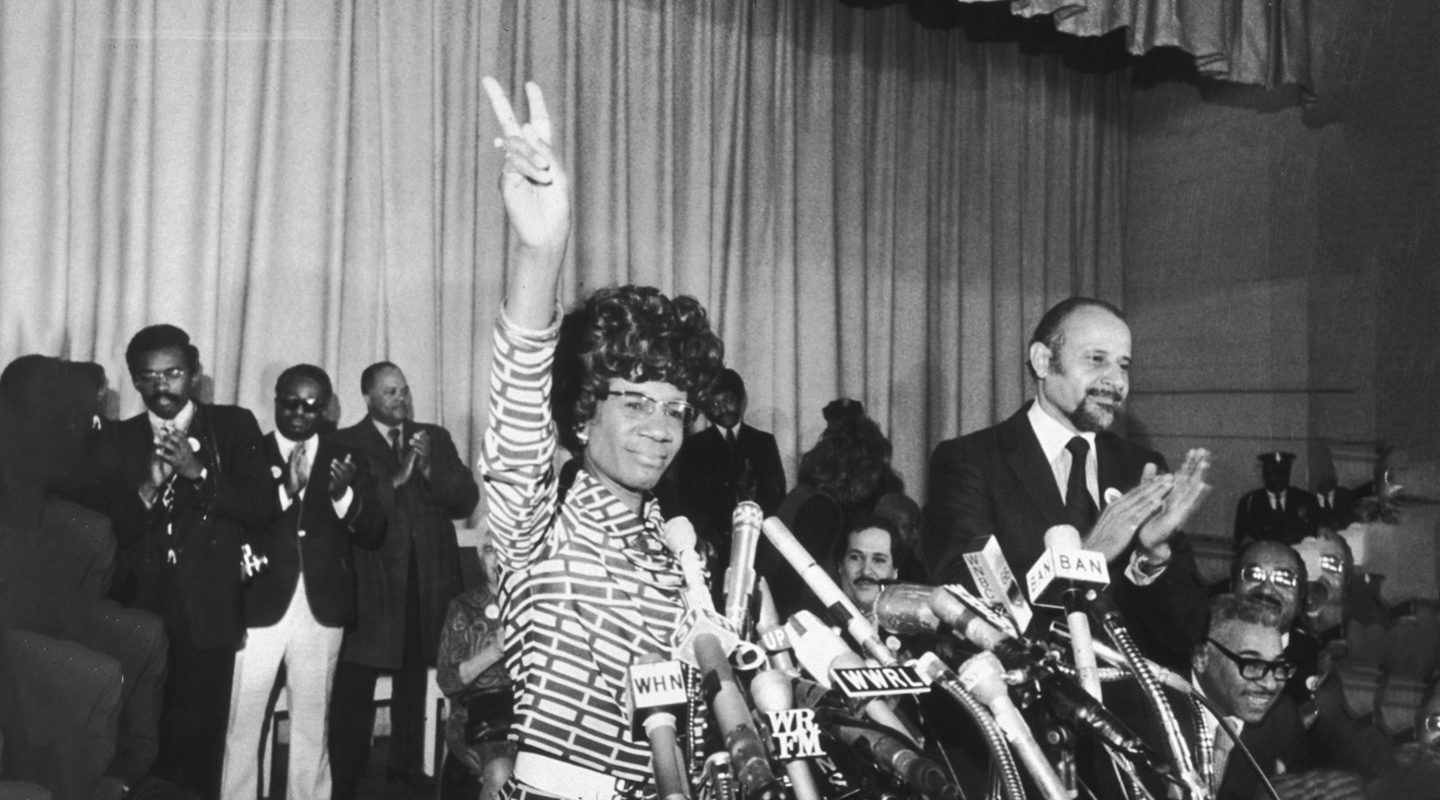“Unbought and unbossed”
1968 was a historic year of radical change. While the Vietnam War raged in Southeast Asia, here in the states, both Martin Luther King, Jr. and Robert Kennedy were assassinated within two months of each other, Richard Nixon was elected to the presidency, and Representative Shirley Anita Chisholm became the first Black woman elected to Congress.
First-generation American, Chisholm was born in Brooklyn to immigrant parents. As a child, she spent time in Barbados with her grandmother before returning to New York in 1934. During her time at Brooklyn College, she advocated for the inclusion of Black soldiers in the U.S. military during World War II, won prizes on the debate team, and graduated cum laude in 1946. She later earned her Master’s Degree from Columbia University while working during the day as a teacher in Harlem.
In the early ’50s, she became more politically active advocating for civil rights, fighting against racial discrimination in housing, and seeking to improve economic opportunities and services in Brooklyn. By 1964, the year of the historic Civil Rights Act, she was elected to the New York State Assembly where she defended the rights of immigrants and workers and pushed for more Black representation in the state legislature.
Chisholm announced her candidacy in January of ’68, won the primary in June, and by November, she made history as the first Black woman elected to Congress.
During her 1972 presidential bid, she faced and fought discrimination. She was blocked from participating in televised primary debates, and her life was threatened multiple times. These issues, combined with an underfunded campaign set her back in the Democratic National Convention, and the nomination ultimately went to George McGovern.
“When I ran for the Congress, when I ran for president, I met more discrimination as a woman than for being black. Men are men.”
Chisholm remained in Congress until 1983 where she championed more than 50 pieces of legislation for racial and gender equality, helping impoverished families, and ending the war in Vietnam. Her 1969 speech defending the Equal Rights Amendment is one of the most powerful speeches of the 20th century, and her leadership paved the way for President Barack Obama and Hillary Clinton’s presidential nominations in 2008 and 2016 respectively.

